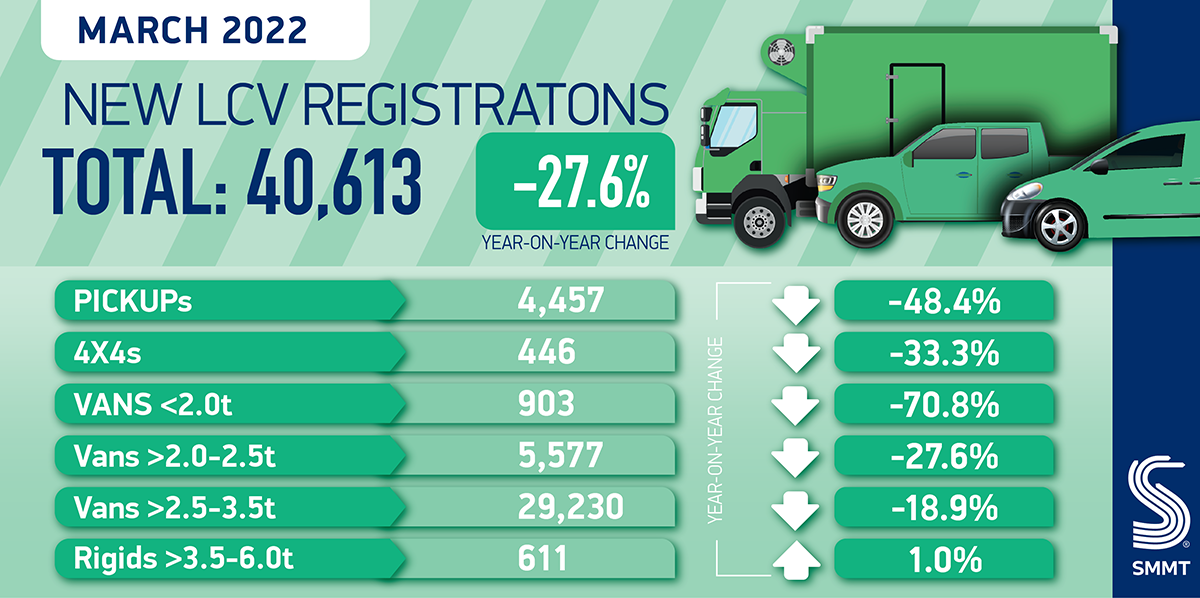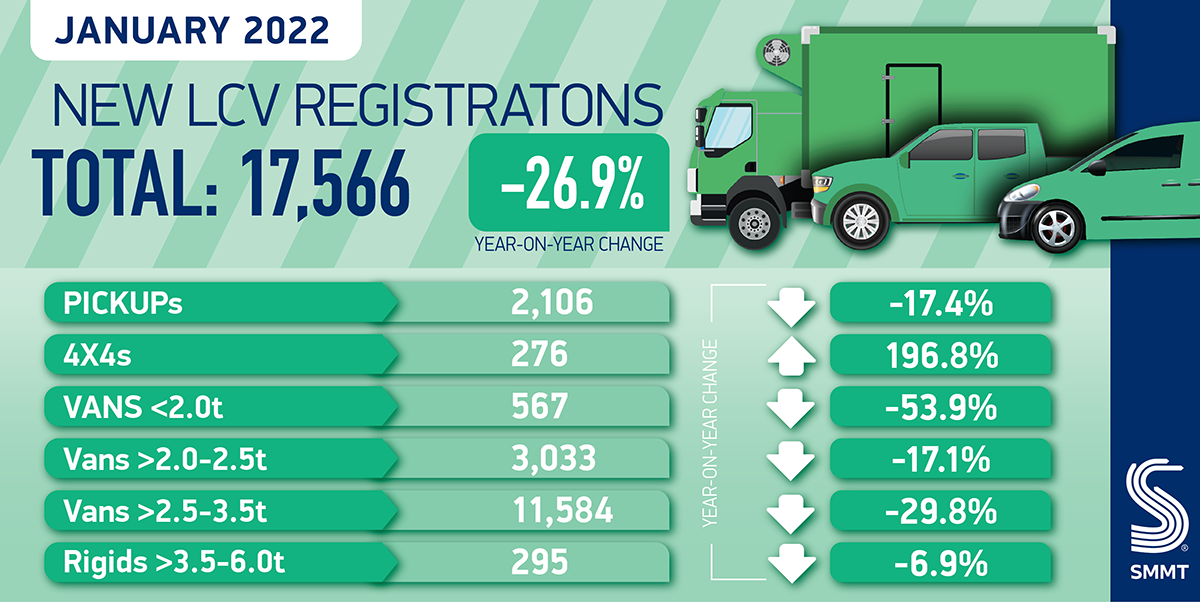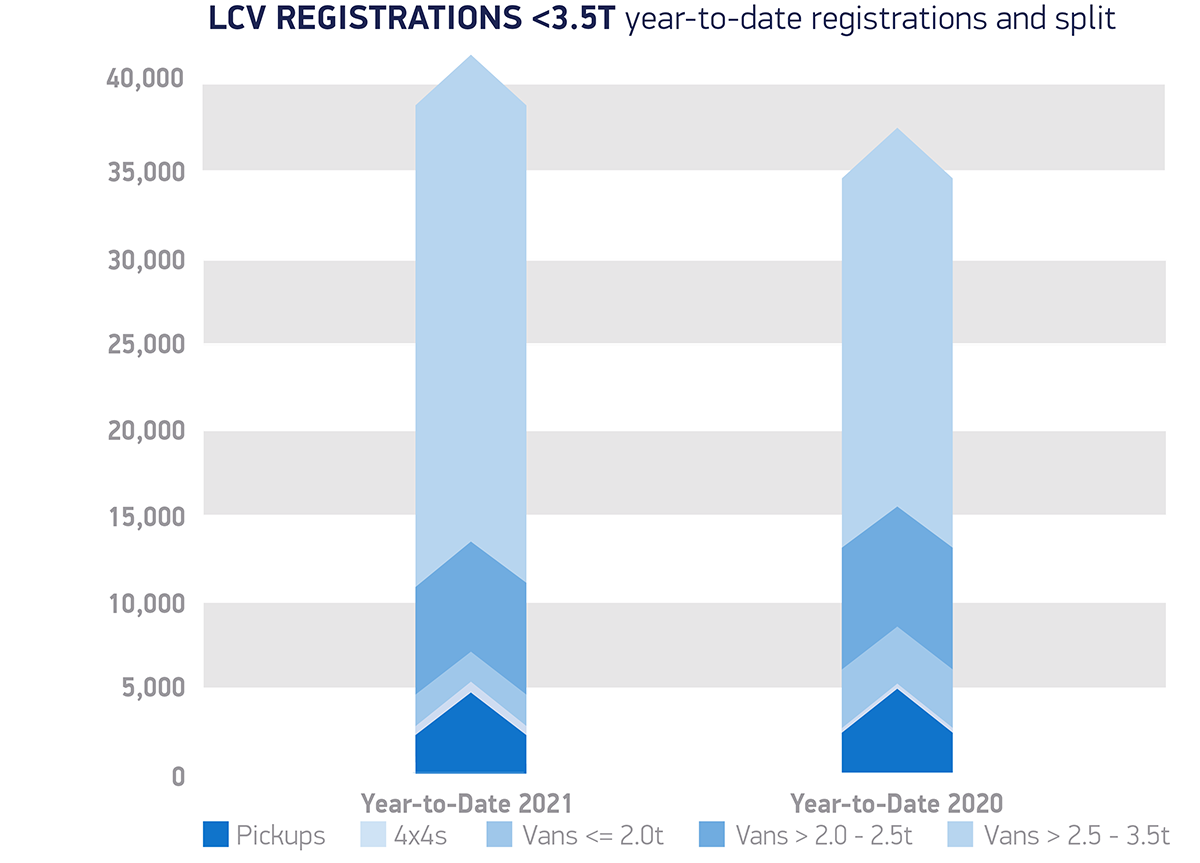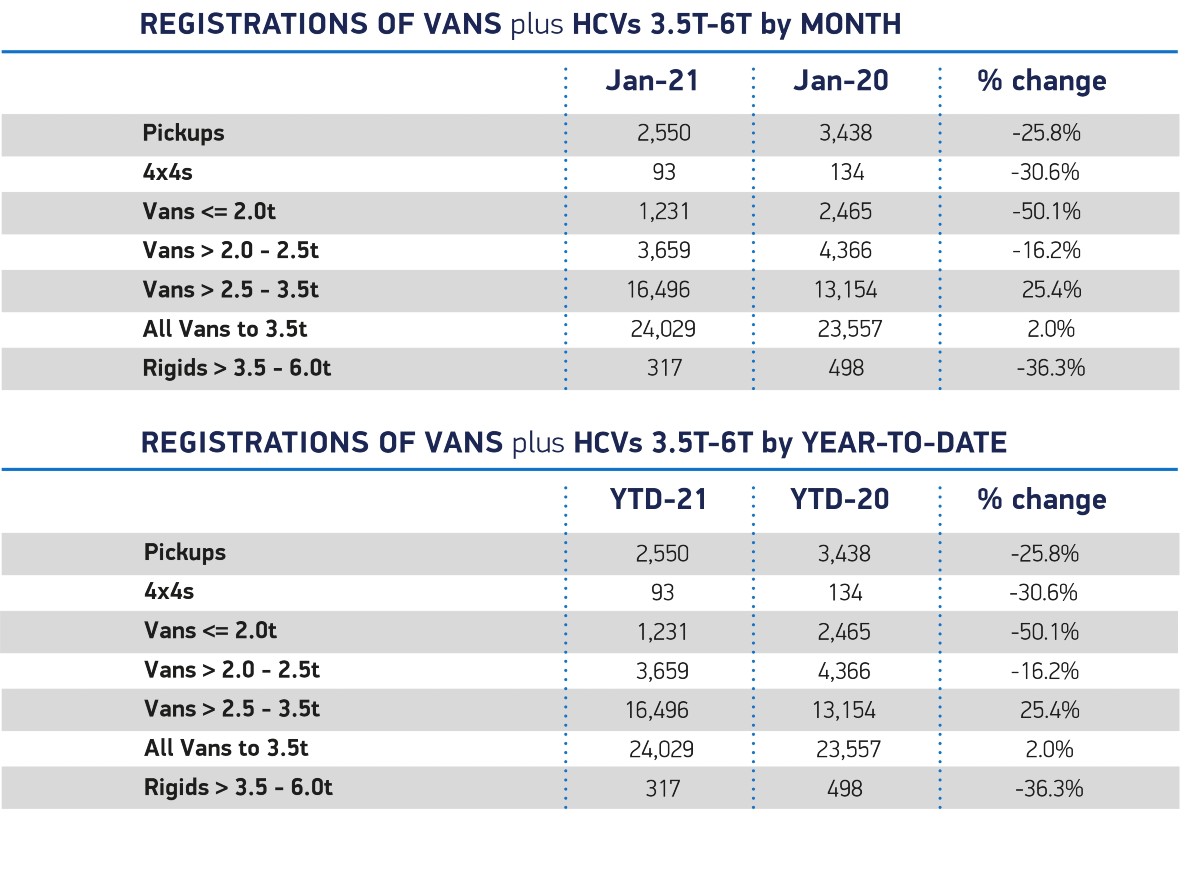Commercial vehicles reach record share of vehicles on road
Vans remain the most popular class of commercial vehicle in operation, comprising 4,804,833 units, up 4.3% from 2020. The segment has enjoyed continuous growth since 2010 but fleet renewal has slowed. The average van on UK roads is now a record 8.7 years old, although there are significant regional variations.















